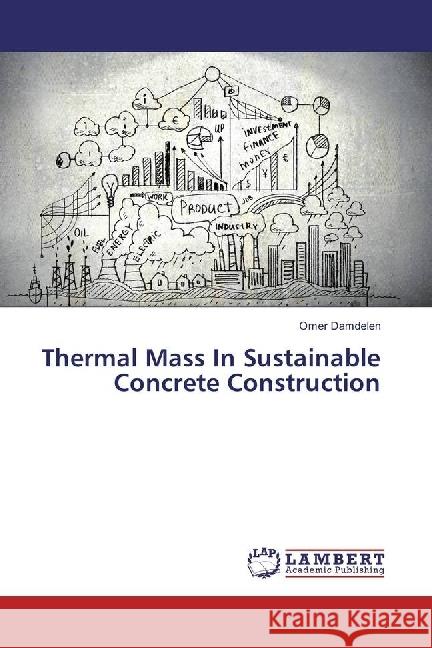Thermal Mass In Sustainable Concrete Construction » książka
Thermal Mass In Sustainable Concrete Construction
ISBN-13: 9783330010031 / Angielski / Miękka / 2016 / 252 str.
Nowadays, the popularity of sustainable concrete construction is increasing every passing year. The purpose of the construction industry is to increase the life of the residence by lowering CO2 emissions and to increase the use of natural resources. Examination of thermal mass can be used to prevent or minimize temperature swings in the building and can be used to eliminate the need for energy consumption. Thermal mass reduces the risk of overheating in the summer and provides passive heating in the winter. Thermal mass is currently evaluated with "admittance" that is the ability of the element to exchange heat with the environment and is based on specific heat capacity, thermal conductivity and density. The aim of this study is to evaluate the effect of thermal properties namely, density, specific heat capacity and thermal conductivity on thermal mass of concrete. In order to evaluate the effect of such thermal properties, different types of cement materials (PFA, GGBS, and SF) and various types of aggregates (NA and RCA) are used. Additionally, water-cement ratio is investigated.











